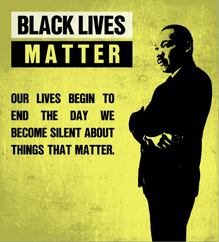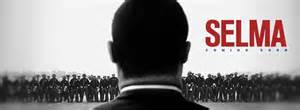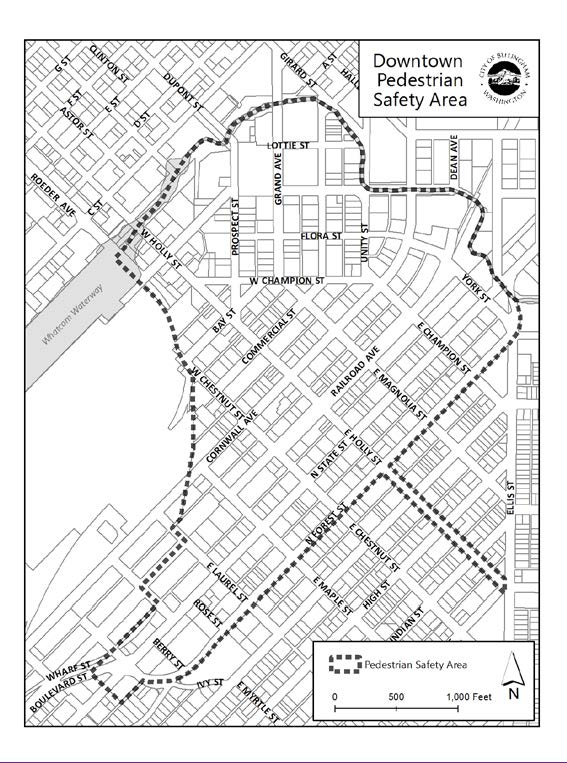|
I took some time this weekend to re-read Jennifer Gonnerman’s piece on the odyssey of Kalief Browder. I wanted to understand how, precisely, it happened that a boy was snatched off the streets of New York, repeatedly beaten, and subjected to the torture of solitary confinement, and yet no one was held accountable. To understand this question is to journey into a world of legal-speak and phraseology all of which, in the case of Browder, allows what we would normally label thuggery to mask itself under the banner of law. Browder was supposed to be held no longer than six months. But as Gonnerman explains, poor people and the courts do not use the same clocks: Many states have so-called speedy-trial laws, which require trials to start within a certain time frame. New York State’s version is slightly different, and is known as the “ready rule.” This rule stipulates that all felony cases (except homicides) must be ready for trial within six months of arraignment, or else the charges can be dismissed. In practice, however, this time limit is subject to technicalities. The clock stops for many reasons—for example, when defense attorneys submit motions before trial—so that the amount of time that is officially held to have elapsed can be wildly different from the amount of time that really has. In 2011, seventy-four per cent of felony cases in the Bronx were older than six months. In the case of Browder, the clock stopped for all sorts of reasons. In one instance a prosecutor claimed he was not ready because of “conflicts in my schedule.” In the other the excuse was jury duty. Another time the prosecutor was on vacation. In the meantime the courts repeatedly tried to exact a guilty plea from Browder—at first offering him three and half years (he was facing fifteen) and eventually offering him time served. Browder refused each time. From Gonnerman’s article, it seems Browder refused on principle, but there were also practical reasons for Browder to refuse. In New York, black men with criminal records represent an untouchable class in the job market. Accepting a guilty plea would not merely have been a symbolic act for Browder, but one with damaging long-term consequences. And Browder could take no comfort in the fact of having been a juvenile at the time of the alleged crime. Taking a guilty plea would not have been a harmless act. For Browder it would have meant being branded as a criminal at the very start of his adult life, which would forever injure his attempts to make a living. This threat to Browder’s life was birthed by the era of Willie Hortons, three strikes, and super-predators. Bragging about how many people you didn’t jail has, only recently, become supportable politics. It remains to be seen how well it shall endure. The politics which entangled Browder were of another era, the era of the Rockefeller Drug Laws. Those politics were not private, but public. It was through the urging, ascent, and endorsement of the public that mass incarceration was born. Kalief Browder’s case was entitled The People v. Kalief Browder not Despotic Autocrat v. Kalief Browder. The People themselves elected the politicians that saw no problem with Rikers, or with all the other Rikers across America. There are some unavoidable conclusions in this. At our implicit behest, a boy was snatched off the streets of New York. His parents were told to pay a certain sum, or he would not be released. When they did not pay, he was beaten and then banished to lonely cell. Browder’s captors then offered him a different way out—pay for your freedom in the political currency of a guilty plea. He refused. More beatings. More solitary. The sum was lowered. Browder still refused. He was subjected to the same routine. Browder defeated his captors. They tired, released him, and likely turned to perpetrate the same scheme on some other hapless soul. Browder’s victory came at the cost of martyrdom, and in his name we should be strong enough to speak directly about what he endured. Kalief Browder was kidnapped in our name. Kalief Browder was held for ransom in our name. Kalief Browder was tortured in our name. Kalief Browder was killed in our name. Let us not pretend that this kidnapping scheme gone awry was somehow moral, or tolerable, just because it was lawful. Let us not accept the notion that our laws are simply sanctification—an expensive tuxedo for base criminality. And let us not pretend that Browder’s death was imposed on us from above. We are living in the America, in the New York, that we wanted. This must be accepted. If we are not responsible for what happened to Kalief Browder, for the ransoming of children, then we are not responsible for ensuring that it never happens again. By some cosmic coincidence we are confronted with the death of Kalief Browder at exactly the moment we seem to be obsessing over the life of Rachel Dolezal. Coincidental as it may be, it is also instructive. Through duplicitous means, Dolezal was able to masquerade as a member of the black race. Such masquerades are neither novel nor original. What fuels the fascination is the way in which it taps into one of America’s greatest and most essential crimes—the centuries of plunder which birthed the hierarchy which we now euphemistically call “race.” Kalief Browder died, like Renisha McBride died, like Tamir Rice died, because they were born and boxed into the lowest cavity of that hierarchy. If not for those deaths, if not for the taking of young boys off the streets of New York, and the pinning of young girls on the lawns of McKinney, Texas, the debate over Rachel Dolezal’s masquerade would wither and blow away, because it would have no real import nor meaning. It is the killing of John Crawford Jr. and the beating of Marlene Pinnock which elevates this charade beyond what Jeb Bush calls himself or what Elizabeth Warren called herself. “I think race is oppression,” writes Richard Seymour, “and nothing else.” Indeed. It is the oppression that matters. In that sense, I care not one iota what Rachel Dolezal does nor what she needs to label herself. I care solely, totally, and completely about what this society does to my son, because of its need to label him.
0 Comments
WA STATE SENATORS Maria Cantwell: 888-648-7328 Patty Murray: 866-481-9186 For emails and more info. Dear Senator Murray, Thank you for your years of service to this experiment we call democracy. On Sunday, May 31, 2015, you have the opportunity to preserve our system self-governance for future generations by voting against the U.S.A. Freedom Act, and the renewal of the Patriot Act. A select few are accumulating power at levels unprecedented in Earth’s history. This is being accomplished through the collection vast amounts of information on each one of us. Similar efforts in the past were extremely inefficient. In a country smaller than the state of Tennessee, the East German secret police required more than 100,000 officers and 170,000 spies to maintain order by causing the entire country to fear speaking out. They tapped thousands of telephones, drilled peepholes into people’s apartments, controlled the press, created profiles used to control people, and when that failed, they put political offenders into prisons. Paper filing system in the Berlin Stasi records office. The state of the available technology of the time, however, limited the power the information provided. As long as people had friends they could trust, friends that were unknown to the government as dissenters, they could speak freely. Without being able to cross reference telephone calls, text messages, emails, and travel, complete isolation of individuals and complete stifling of unorthodox views remained difficult. NSA’s billion dollar, 247 acre data center uses $1,000,000 of electricity 52.7 million gallons of water each month.
Wait a minute, we do not live in the 20th century totalitarian state of East Germany, we live in 21st century America! But alas, democracies are also subject to the failings of human nature. Adolf Hitler was elected. But that was long ago, we have advanced as a race since then. We are more discerning now. Unfortunately we have the recent and current examples of Mohammed Morsi, and Vladimir Putin, who shortly after being elected proceeded with the dismantling of divided government and the consequential consolidation of power into the hands of the few. Putin was given his power by the people, but he holds onto power by imprisoning and executing dissenters. But we are America, a mature democracy! Maybe too mature. America has graduated to publicly executing its own citizens without a trial, based on the suspicions of a single decider in the executive branch. We believe we are mature enough to imprison people in Guantanamo indefinitely without a trial. We rely less on the judicial branch to assess probable cause for searches. With our new found maturity, we are quietly doing away with the judicial branch. But we have a third branch that can check and balance the executive. You as a senator were not consulted by the executive branch prior to the launch of mass surveillance. After the fact, when the Senate asked, the executive branch lied, and told you under oath “No,” it was not collecting “any type of data on millions or hundreds of millions of Americans.” You are not privy now to what is being done with the information, or what will be done with the information after the next presidential election. It is primarily private corporations that collect the data, not the NSA. Edward Snowden worked for Dell, not the NSA. It is private companies like Motorola, not the NSA, that are providing the government threat scores for all of us (good, bad, or okay), based in part on electronic surveillance, through federally funded programs like Intrado Beware. You are not in charge. Warrantless mass surveillance does not just violate the 4th Amendment warrant requirement, it violates freedom of speech and freedom of electronic assembly. Warrantless mass surveillance is not wrong primarily because it violates privacy, it is wrong because it violates the security of a free people. Warrantless mass surveillance is wrong because it thwarts the people’s attempt at dividing the power of the government under the constitution. It is wrong because it puts vast amounts of power into the hands of the few. The Patriot Act expires on Sunday, May 31, at midnight. Let it die. Let America live. Respectfully, Edward Alexander  The Racial Justice Coalition (RJC) is a new community group taking action against conscious and unconscious racial bias. The coalition formed in December 2014 as part of a national response to law enforcement’s use of deadly force against black men. The group’s objectives are to fight racism and racial profiling by law enforcement in Whatcom County and to make Whatcom County a safe and equitable place for people of color to live. The coalition will be working on projects and participating in community events to raise awareness about the disparate treatment of people of color by law enforcement in Whatcom County. For example, on March 4, coalition members participated in a community discussion on improving relations between police and the public, held by Western Washington University’s Ralph Munro Institute for Civic Engagement at City Hall. At this meeting, RJC members brainstormed interventions and actions to improve community and police relations and invited community members to participate with the coalition. Another action task of the RJC is researching local arrest and incarceration rates. Initial results show striking patterns that suggest people of color in Whatcom County are brought into the criminal justice system at rates higher than in Ferguson, Missouri, and across the United States. RJC was formed to address and rectify this tragic disparity in treatment of people, in order to help create an equitable community, where all people can live with freedom, respect and dignity. RJC wants it to be known that they support police officers and respect the work that they do to keep our communities safe. RJC does not however support racial profiling and works to ensure that racial profiling and bias by law enforcement are not practiced in our community. For more information on the Racial Justice Coalition, media members can contact the Racial Justice Coalition at racialjusticecoalition@gmail.com. Get involved RJC welcomes all who care and are of like-minds to visit their meetings and get involved. RJC welcomes short-term volunteer support on a project-by-project basis or long-term volunteer support on an ongoing basis. RJC meets the first Tuesday of every month at the Whatcom Peace and Justice Center, located at 1220 Bay Street in downtown Bellingham. Join the Facebook group: https://www.facebook.com/groups/805865166153530/ City Council, I understand that the Bellingham City Council is considering increasing sanctions for sitting and lying on sidewalks, having open containers, and being intoxicated in the downtown area. I understand the idea is to jail these people by making civil infractions into misdemeanors. I also understand that temporarily jailing mentally ill, alcoholic, and homeless people does not decrease alcoholism, mental illness, or homelessness. When they are released, they will still be alcoholic, mentally ill, and/or homeless. Also, I am concerned that the program seeks arbitrary enforcement against people whose appearance does not fit the downtown aesthetic (i.e., classism). At the same time, Whatcom County residents are considering a tax increase to build a larger “right sized” jail. Please consider the relationship between these two measures: If you build, they will come. No, that’s not quite right – if you send them, we will have to build – that’s it. The current question is what should a compassionate and frugal city do with its poor and marginalized residents – help bring them into the fold, or push them away and pressure them to move down the road a bit, maybe towards Maritime Park? Please remember that both of these options have costs. Let’s seriously consider which one will be less costly in the long term. Edward S. Alexander  by Edward S. Alexander Selma takes lessons from history and presents them in a fresh, relatable way for today’s soon-to-be activists. Perhaps the biggest impediment to action is that tiny fleeting moment between the flash of realization that there is a problem, and the decision as to what if anything to do about it. Selma raises the question, and answers it loud and clear. We see it all too often: a conversation, a news article, a book, or a movie reveals a deep and disturbing truth. The experiencer of truth feels deep connection with the world around her, a quickened heart rate, and then the briefest pang of guilt or fear when she realizes that her part in the world is very much a cause of the problem. She realizes that to make a difference she will have to change longstanding routines and habits that have made her feel safe. She will have to admit her complicity. She will have to dismantle her own longstanding patterns of thought. And if she allows herself to dwell on this deep and disturbing truth long enough, she will realize that to make a real difference, she will have to upset people, including people she looks to for affirmation, love and support; for they, too, need to go through this painful process. All of this happens in an instant. The typical next step is for the experiencer to throw her hands up in the air and ask (rhetorically), what can I do about it? At that point, the battle is nearly lost. In the space of that very fleeting moment before she asked the question, she had already retreated to a safe place where she knows the answer: Nothing I can do will be effective in solving this problem. Selma jams a crowbar into that tiny space, that fleeting moment, and keeps it pried open for 127 minutes. Martin Luther King and a host of other activists show the moviegoer in scene after scene what she can and should do about it: “What we do is negotiate, demonstrate, resist.” King tells the moviegoer with confidence that she can and must do something about it: No citizen of this country can call themselves blameless, for we all bear a responsibility for our fellow man. I am appealing to men and women of God and Goodwill everywhere, white black and otherwise: if you believe all are created equal, come to Selma. Join us. Join our march against injustice and inhumanity. We need you to stand with us. And after the movie ends and the credits start to roll, when the experiencer is looking for a dark corner to retreat to, a safe place to hide from the beautiful and horrifying light of truth they have just experienced about humanity. . . ah, there it is: "That was history; racism is behind us now. . ." That's when John Legend’s song glory tells us how it is: That's why Rosa sat on the bus That's why we walk through Ferguson with our hands up When it go down we woman and man up They say, "Stay down" and we stand up Shots, we on the ground, the camera panned up King pointed to the mountain top and we ran up One day, when the glory comes It will be ours, it will be ours Oh, one day, when the war is one We will be sure, we will be here sure Oh, glory, glory Oh, glory, glory glory Yes, there it is: That scene where Lynden B. Johnson and Alabama Governor William Wallace are sitting in the oval office; Johnson asks, “You agree they should have the right to vote, don’t you?” and Wallace answers, “Yes, and they do have the right to vote. . . technically.” Even if moviegoers are capable of mental gymnastics that might enable them to land on some technicality – maybe something like the fact that grand juries heard all the evidence and decided not to indict – how many will want to stand there? How many will want to return to the shadows? Maybe some. But don’t let them. So how do you heed Martin Luther King’s posthumous call to action now, in 2015? Learn the facts of the John Crawford shooting, the Michael Brown shooting, the Eric Garner shooting, the Tamir Rice shooting. Tell people that 2014 is only different from the previous years because we do not know the names of the people who died in 2013, or 2012. Watch the film Fruitvale Station and see Oscar Grant’s last 24 hours before he was shot by police in 2013. Tell people that the laws still have not changed. Technically, disparate treatment is illegal. It has been since the 14th amendment was passed in 1868. Police, though, are not required to attend racial bias training. Police are not required to collect, sort and share race data on stops, searches, arrests, and uses of force, rendering civilian oversight of our public servants very difficult. And of course . . .negotiate, demonstrate, resist. The Perfect-Victim Pitfall Michael Brown, and Now Eric Garner by Charles M.Blow -NYT "When it comes to racially lopsided arrests, the most remarkable thing about Ferguson, Mo., might be just how ordinary it is. Police in Ferguson — which erupted into days of racially charged unrest after a white officer killed an unarmed black teen — arrest black people at a rate nearly three times higher than people of other races. At least 1,581 other police departments across the USA arrest black people at rates even more skewed than in Ferguson, a USA TODAY analysis of arrest records shows. That includes departments in cities as large and diverse as Chicago and San Francisco and in the suburbs that encircle St. Louis, New York and Detroit." http://www.usatoday.com/story/news/nation/2014/11/18/ferguson-black-arrest-rates/19043207/ |



 RSS Feed
RSS Feed
